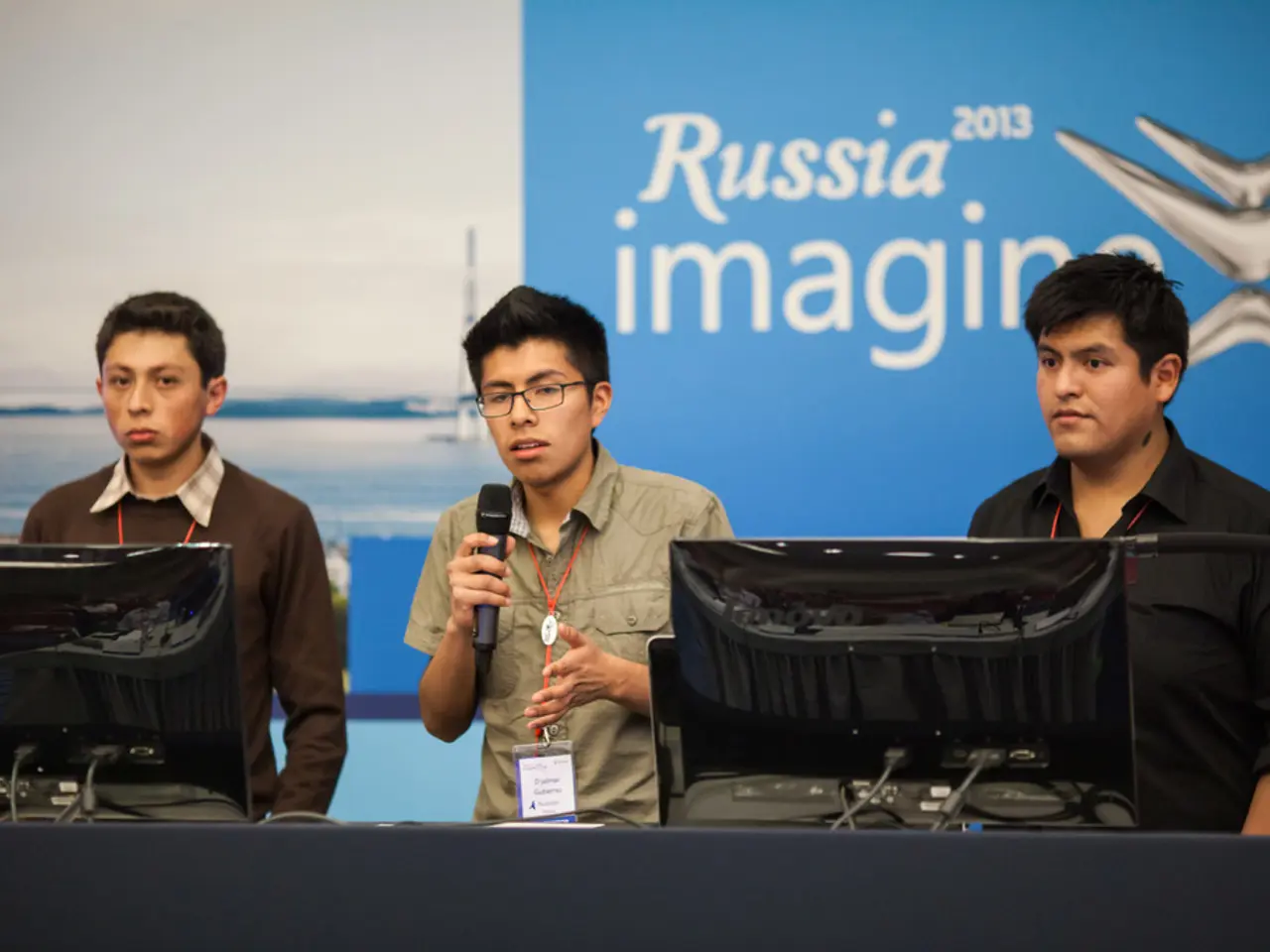Anticipated Outcomes of the Putin-Trump Meeting by Ukrainians
The recent meeting between US President Donald Trump and Russian President Vladimir Putin in Alaska has left the prospects for a peace deal between Ukraine, the U.S., and Russia uncertain and complex.
The summit, which took place on undisclosed dates, was the first high-level meeting between the two presidents since Russia's 2022 full-scale invasion of Ukraine. The meeting on U.S. soil signaled a willingness for dialogue but highlighted entrenched differences.
Despite being described as "constructive" by both leaders, no ceasefire or concrete peace deal was reached. Both leaders avoided detailed public commitment, with Trump indicating future talks with Ukraine and European allies. However, there was no Ukrainian agreement or clear Ukrainian involvement at the summit itself.
Ukraine opposes any deal that involves ceding territory to Russia, especially in light of ongoing Russian war crimes allegations, including an ICC arrest warrant for Putin. Analysts suggest a hypothetical peace framework might include ceasefires, mutual recognition of Ukraine's sovereignty over most territory, and guarantees not to forcibly retake occupied lands, but only if Ukraine consents—a scenario not yet realized.
Ukrainian experts do not rule out that the US may try to blackmail Ukraine into accepting unacceptable conditions after the Putin-Trump summit. Dmytro Levus, who heads the Ukrainian Meridian Social Research Center, emphasizes that Ukrainian's constitution does not allow for the ceding of Ukrainian territory.
Iryna Herashchenko, a leader of Ukraine's opposition European Solidarity Party, believes that negotiations should be conducted with the participation of Ukraine and the EU, with strict security guarantees, international monitoring, and provisions for sanctions. Herashchenko warns against recognizing Russian occupation as it could signal that violence goes unpunished and lead to new wars.
A survey conducted by the Kyiv International Institute of Sociology (KIIS) found that 76% of Ukrainians reject Russia's "peace plan" and the idea of making concessions to Russia. The survey also revealed that 49% of Ukrainians oppose the US peace plan that entails security guarantees from European countries but not from the U.S., recognizes Crimea as part of the Russian Federation, maintains Russian control over Ukraine's occupied territories, and lifts sanctions against Russia.
Ukrainian President Volodymyr Zelenskyy expressed concerns about being excluded from the talks, stating that any decisions made without Ukraine would not work for peace. Many Ukrainians are concerned that the upcoming negotiations between Putin and Trump, which will not have Ukrainian or European representatives present, will be aimed at forcing Ukraine to capitulate.
Oleksandr Kraiev, a lecturer at Kyiv-Mohyla Academy and researcher at Ukrainian Prism think tank, suggests that the summit will be held for the sake of talks, with a joint statement on continuing the negotiations being a possible outcome. However, Horbach does not expect any practical outcomes of the negotiations in the context of the Ukrainian-Russian war, as the proposals made by Putin will not be accepted by Ukraine or the European Union.
Danylo Hetmantsev of Ukraine's ruling Servant of the People party views the upcoming talks as an opportunity to reveal Russia's stance. Despite the sporadic and unsystematic weapons deliveries to Ukraine, Kraiev notes that a potential threat to halt them may not be as significant.
In conclusion, while the Alaska summit represented an opportunity for dialogue, the lack of Ukrainian participation in negotiations, Ukraine’s opposition to territorial concessions, and unresolved war crimes concerns mean concrete peace prospects remain uncertain and conditional on wider multilateral diplomatic progress. Future negotiations would have to reconcile these deeply conflicting positions to produce a viable peace deal.
- The recent summit between President Trump and President Putin in Alaska has raised concerns among Ukrainian officials about the prospects of peace, as the meeting did not include Ukrainian participation and Ukraine opposes any deals that involve territorial concessions to Russia.
- Despite the meeting being described as constructive by both leaders, no ceasefire or concrete peace deal was reached, and future talks with Ukraine and European allies were indicated by President Trump.
- Analysts suggest that a hypothetical peace framework might include ceasefires, mutual recognition of Ukraine's sovereignty, and guarantees not to forcibly retake occupied lands, but only if Ukraine consents.
- A survey conducted by the Kyiv International Institute of Sociology found that 76% of Ukrainians reject Russia's peace plan and the idea of making concessions to Russia, indicating a strong resistance to any negotiations that do not align with Ukraine's interests.






